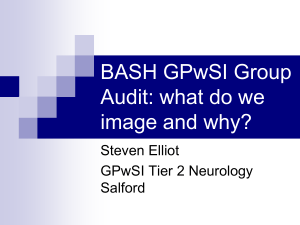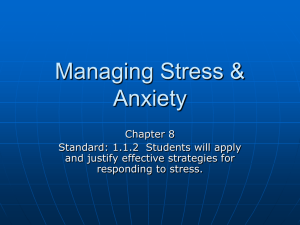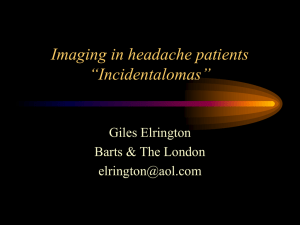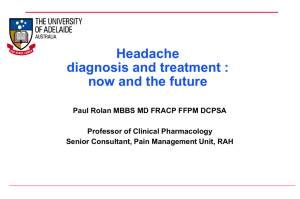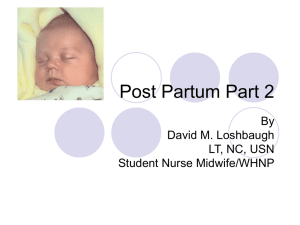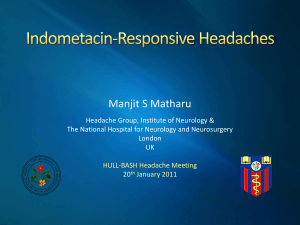Document
advertisement
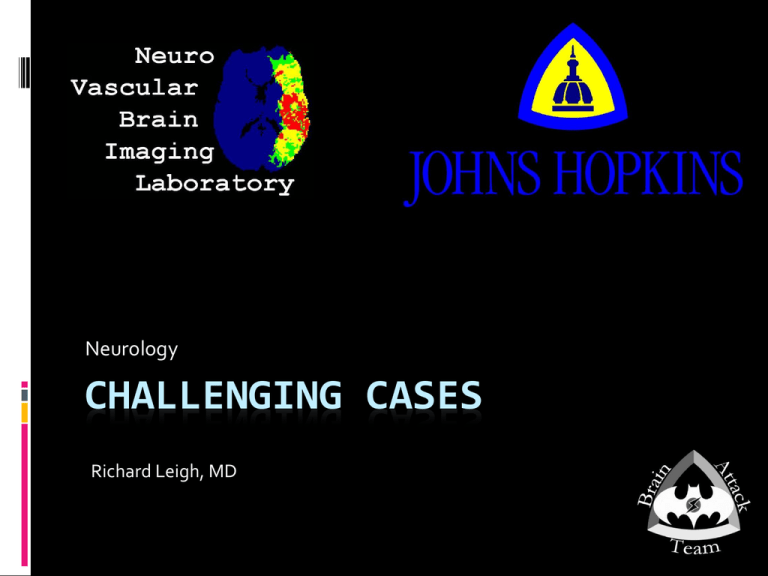
Neurology CHALLENGING CASES Richard Leigh, MD Post Partum Headache I 34 y/o healthy woman 3 days post partum after an uncomplicated delivery with epidural anesthesia develops headache, photophobia, neck stiffness On exam she has papilledema and constricted visual fields. Post Partum Headache I Differential Diagnosis: Cerebral venous sinus thrombosis Reversible vasoconstriction syndrome (RCVS) Preeclampsia/eclampsia Pituitary apoplexy Benign intracranial hypertension Post dural puncture headache Carotid or vertebral artery dissection Meningitis/Encephalitis ICH/SAH Post Partum Headache I MRI shows: Subdural Hematoma Post Partum Headache II 35 y/o healthy woman 10 days post partum after an uncomplicated delivery of twins with epidural anesthesia develops presents with headache which is worse when she stands up. On exam she has no papilledema and is neurologically intact. Post Partum Headache II MRI shows: Pachymeningeal Enhancement Post Partum Headache II She was diagnosed with a post LP headache and treated conservatively. Thecal sac was likely disrupted during the placement of her epidural Headache persisted and she represented 10 days later with worsening headache Post Partum Headache II MRI shows: Subdural Hematomas Post Partum Headache II Two weeks later she was presented with recurrent headache, now worse when she lay down. On exam she had double vision with lateral gaze and papilledema on fundascopic exam MRI unchanged Started on acetazolamide (diamox) with improvement in her headache Post Partum Headache I & II Puncture of the thecal sac prior to delivery Over draining of the CSF during delivery Post paratum hypotension leading to SDH Resolution of the CSF leak leading to increased intracranial pressure due to too much contents in the cranial vault Responded to CSF production inhibition With resolution of the SDH they were weaned off of the acetazolamide . The Pressure Dependent Exam 55 y/o gentleman with a h/o hypertension presents after 24 hours of fluctuating left arm weakness On exam his left arm drifts down; but when the head of the bed is put flat, his arm comes back up! The Pressure Dependent Exam DWI ADC FLAIR The Pressure Dependant Exam DWI PWI - TTP FLAIR The Pressure Dependant Exam TOF - MRA SWI SWI mIPs The Pressure Dependant Exam Perfusion Quantified The Pressure Dependant Exam – One Week Later DWI FLAIR PWI - TTP The Pressure Dependant Exam Perfusion Quantified Hypertensive Crisis 66 y/o gentleman with a h/o hypertension and hyperlipidemia presents with confusion and headache. With systolic blood pressures in the 200’s he was confused with a mild left arm weakness. Hypertensive Crisis MRI showed: PRES (posterior reversible encephalopathy syndrome) Hypertensive Crisis - PRES Differential Diagnosis HTN Renal Disease Pregnancy/eclampsia Autoimmune disease Chemotheraputics Immunosuppressants Porphyria Hypertensive Crisis - PRES Started on a nicardipine drip for blood pressure control Became acutely hemiplegic on the left side when SBP cam below 150 Hypertensive Crisis – PRES with MCA occlusion Angiogram confirmed complete occlusion of the right middle cerebral artery. PRES due to HTN from an M1 stenosis with a pressure dependant exam DWI PWI – TTP FLAIR Wake-up Stroke Case 67 y/o gentleman with h/o CAD, HTN, Tobacco use presents to an OSH after waking with left sided weakness, last known normal puts him out of an IV tPA window thus he is tranfered to JHH for IA therapy. Hyper acute MRI reveals: DWI ADC FLAIR Wake-up Stroke Case Qualitative assessment of the DWI/PWI reveals: Target mismatch? PWI ADC FLAIR Wake-up Stroke Case Using Olea Sphere software (formerly Perfscape), ADC volume (<600) and Tmax volume (<6 secs) is overlaid on the FLAIR. SIR values can also be generated using the ADC ROI. Olea images are going to be uploaded to PACs. PWI ADC FLAIR (Olea Overlay) Wake-up Stroke Case Volumetrics reveal: DWI volume of 13cc 6 sec PWI deficit of 67cc 10sec PWI deficit of 40cc Mismatch Ratio 5.15 Target Profile! Patient taken for IA thrombectomy using the stentriever device with successful recanalization of the right MCA. Patient walked out of the hospital with only a mild residual weakness of the left arm (4/5)
